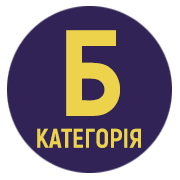WAYS OF TEACHING PIANO PERFORMANCE TO STUDENTS OF PEDAGOGICAL EDUCATION
Abstract
The article summarizes individual empirical and special studies of methods of teaching piano playing to students of pedagogical education. The purpose of the study is to reveal the possibilities of actively involving students in the development of practical skills and abilities of playing the piano, understanding the psychology and physiology of their learning for future professional activities. The research is based on the methodological essence of teaching students piano performance. It is noted that learning to play the piano is a process based on various teaching methods. It is indicated that the researchers divide the components of the teaching methodology of students piano performance into: into inductive (from specific to general) and deductive (from general to partial); by the level of independence of cognitive activity. With all the wealth of research, it has been established that the attention of researchers is mainly directed at preparing students to master the skills and abilities of performing musical works. The author found that insufficient attention is paid to the basis of piano performance - the orientation of students to awareness and understanding of the methods, physiology and psychology of their acquisition of skills and abilities of playing the piano during independent piano lessons. As a result of the research, the author concludes that students need to know the methods of piano teaching. Methodological materials should allow students to: independently reflect on the knowledge gained in piano lessons; consciously develop the performance technique of playing the piano, which will become the basis for forming an interest in performing musical works and will awaken the creative initiative necessary for professional activity. The author also noted that the main condition for mastering and using piano playing skills should be a certain technical and emotional accessibility of the musical pieces being studied. At the same time, to achieve professionalism, students need reasonable expediency, consistency, and systematic independent, understandable piano lessons.
References
Касьяненко Л. (2019). Робота піаніста над фактурою (друге доповнене видання). Одеса : ПНПУ ім. К.Д. Ушинського. С. 21–23.
Ростовська І. (2015). Формування мотивації учіння гри на фортепіано: навч.-метод. посіб. /Ніжин: нац. Держ. ун-т ім. М. Гоголя, С. 36–37.
Падалка Г. (2008). Аналіз складових професійного самовдосконалення майбутніх фахівців музичного мистецтва. Київ : Освіта України, С. 2–5.
Гуральник Н. (2011). Науково-педагогічна школа піаністів у теорії та практиці музичної освіти і виховання: навч.-метод. посібник для вищих освітніх закладів. Київ : Вид-во НПУ ім. М.П. Драгоманова, С. 110.
Мозгальова Н. (2012). Теорія і методика інструментально-виконавської підготовки майбутніх учителів музики : автореф. дис… доктора пед. наук. Спеціальність : 13.00.04. Київ. С. 3–5.
Таран І. (2017) Методичні рекомендації для організації самостійної роботи студентів з дисципліни Спецінструмент (фортепіано). Івано-франківськ: ПНУ ім. Василя Стефаника. С. 3–5.





